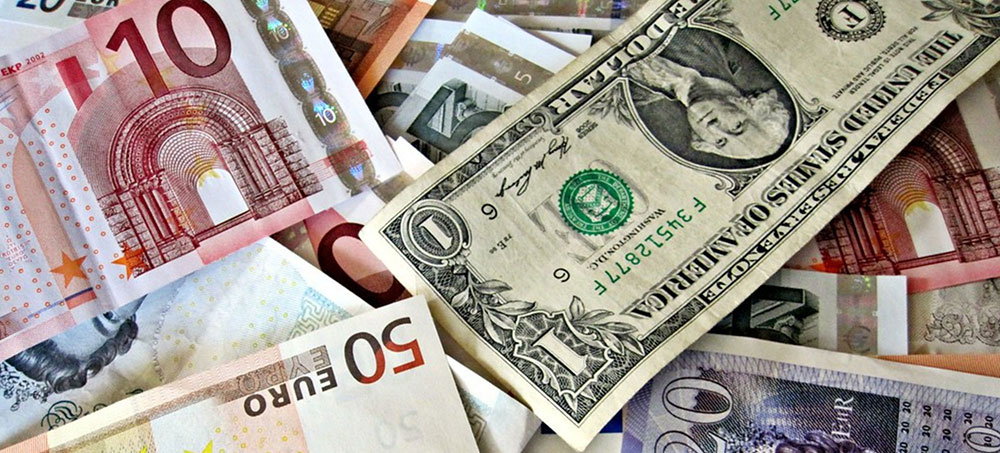Award-winning Travel Insurance
Accessing money abroad as a teen traveller
Like thousands of school leavers, you might be planning a trip during your summer holidays. After making your travel arrangements — booking hostels by international airports, as well as plotting the best routes to use — you might wonder how to sort out your travel money.
Here are our top 5 tips for handling and accessing your travel money if you're a teenager on holiday:
1. Using a debit card tied to an account
One, getting money from the ATMs is substantially cheaper compared to going for money exchange. However, it is essential to know the exchange rate of foreign cash at the time of travel. If your teenage son or daughter is going for a vacation to a designated city outside your country, you would be possibly having nightmares about how he or she will have access to money for upkeep. Worry no more! You can apply for a debit card tied to a particular bank account and under your child's name depending on the destination country. Ensure that you don't ask for the overdraft protection. It is vital to verify with the bank before opening the account for your teen. Some debit cards may not be usable in various countries. Some useful tips on how to use the debit cards:
- Inquire from the bank the number of fees incurred on withdrawing money from the foreign ATMs.
- It is essential to withdraw cash for upkeep rather than paying for goods purchased at stores using the cards. Doing this may significantly save your transaction costs.
- Ensure that your child knows how to use a debit card.
- A few weeks before your child travels, notify your bank the dates your teen will be out of the country to avoid fraud alerts and denials. Also, make copies of the cards your teen will use in case of an emergency. Keep the bank numbers safe too; you may need their assistance in time of the problem.
Debit cards are best suited for massive purchases such as hotel bills, car rentals, airline tickets and restaurant meals. The primary benefit of using a debit card when touring overseas is that a debit card purchase is exchanged at the international bank exchange rate. The conversion rate charged per transaction is usually less than one percent.

2. Making use of pre-paid cards
A low-cost prepaid card is another option worth considering if your teen is touring the world. These prepaid cards resemble a modern type of traveler's cheque. The card is pre-loaded with some cash if your teen is traveling to countries with a different currency. When using this card to make payments, the money deducted is converted to the desired cash, and then a transaction occurs. The fees charged vary a lot and are sometimes higher compared to the charges incurred if one uses a debit credit.
3. Consider a currency card
Look for a competitive currency or bank card. Numerous currency cards are now offering excellent value. It is possible to find a currency card that charges absolutely nothing when making payments while providing near perfect foreign exchange rates. These cards also offer the client with an option to keep the cash in it in the original currency without having to convert it to the desired currency every time. The cards are now being used in most parts of the world.
4. To exchange, or to not exchange?
If you prefer the money way, you should think again. Exchanging currency may cost you up to 20% more on the exchange fees, in contrast to the lower charges that one may incur when using a pre-paid or debit card. A benefit that a user enjoys when using a card is that the card may be used in shopping malls and other facilities that accept cards as a mode of payment. Always remember to indicate to the bank on the destinations that the card will be used from. The conversion rates and fees are usually high at times due to inflation of the economy.
5. What to do if your card stops working
You should not worry if the card stops working. The first thing you should do is to contact your bank and inquire why a transaction has been withheld on the affected card. They will undoubtedly ask you some security questions such as how many purchases were made or the last place where a purchase was processed. It is usually easy and fast to get a card reactivated. Sometimes, you may need the services of wire transfer companies such as the western union.
Holiday Extras Travel Insurance is sold and administered by Holiday Extras Cover Limited, registered office address: Ashford Road, Newingreen, Hythe, Kent CT21 4JF.
Holiday Extras Cover Limited is an insurance intermediary authorised and regulated by the Financial Conduct Authority, registration number 828848. You can check this by visiting the Financial Services Register
Holiday Extras™ is a Trading Name of Holiday Extras Cover Limited. The insurance is underwritten by Great Lakes Insurance UK Limited. Great Lakes Insurance UK Limited is a company incorporated in England and Wales with company number 13436330 and whose registered office address is 10 Fenchurch Avenue, London, United Kingdom, EC3M 5BN.
Great Lakes Insurance UK Limited is authorised by the Prudential Regulation Authority and regulated by the Financial Conduct Authority and the Prudential Regulation Authority. Firm Reference Number 955859. You can check this by visiting the Financial Services Register